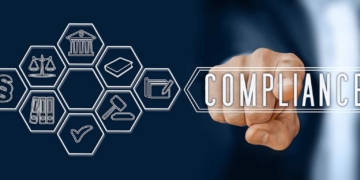Introduction
Compliance is a term that is becoming increasingly important in the business world. It is a concept that ensures that companies and their employees comply with legal regulations, internal policies and ethical standards. In this article, we will take an in-depth look at compliance, explain its importance, highlight its various aspects and discuss the challenges associated with compliance.
- Compliance is the adherence to laws, regulations, standards and ethical principles by companies and their employees.
- Important advantages are the avoidance of legal consequences and the protection of the company's reputation.
- An effective compliance program includes risk assessment, clear guidelines and employee training.
- Challenges include the complexity of the regulations and the cost of implementing compliance measures.
- Data protection compliance is crucial in the digital world, especially with regard to the GDPR in the EU.
- A compliance officer plays a key role in monitoring compliance with regulations.
- Compliance strengthens the trust of customers, partners and the public, which is essential for companies.
Definition of compliance
In the broadest sense, compliance means adherence to laws, regulations, standards and ethical principles. It is about companies and their employees acting in accordance with the applicable rules and standards.
Why is compliance important?
Avoid legal consequences
Failure to comply with laws and regulations can result in penalties, fines and, in the worst case, criminal charges.
Protect reputation
A company that is deemed compliant often enjoys a higher reputation among customers, partners and the public.
Risk Management
Compliance helps to identify and minimize risks, which ultimately promotes the stability and security of the company.
Elements of a compliance program
Risk assessment
Effective compliance requires regular assessment of the risks to which the company is exposed.
Policies and procedures
It is important to develop clear policies and procedures that help employees act compliantly.
Training and education
Employees should be regularly trained and informed about the importance of compliance.
Monitoring and testing
A compliance program should include monitoring and auditing mechanisms to ensure that policies are being followed.
Response and improvement
When violations are identified, the company must respond appropriately and take action to prevent future violations.
Types of compliance
Legal compliance
This involves compliance with laws and regulations that apply to the company’s industry or business sector.
Ethical compliance
This refers to compliance with ethical standards and principles that often go beyond legal requirements.
International Compliance
It is important for global companies to comply with the regulations and standards of the countries in which they operate.
Compliance challenges
Regulatory complexity
The multitude and complexity of applicable regulations can make it difficult for companies to keep track of them all.
to cost
Implementing and maintaining an effective compliance program can be costly.
Changing laws and regulations
Laws and regulations are constantly changing, and companies must adapt their compliance programs accordingly.
Compliance in the digital world
In today’s digital world, where data plays a crucial role, data protection compliance is of particular importance. Companies must ensure that they comply with data protection laws such as the GDPR in the EU and protect the personal data of their customers.
Compliance Officer
Many companies appoint a compliance officer or a compliance department that is responsible for monitoring compliance with laws and regulations. The compliance officer plays a key role in identifying risks, developing policies and training employees.
Conclusion
Compliance is an essential component of corporate governance. It’s not just about avoiding penalties, but also about earning the trust of customers, partners and the public. An effective compliance program requires continuous risk assessment, clear policies, training, monitoring, and the ability to respond to violations and make improvements.





















